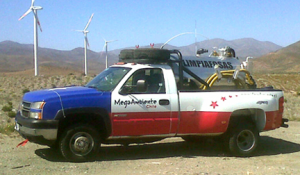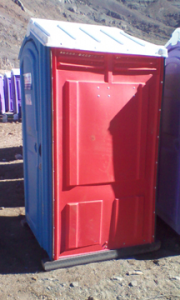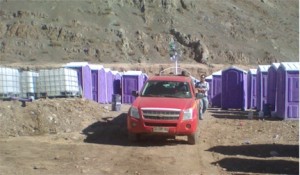Most people would probably agree that improving people’s lives and
preserving the environment are very worthy goals. If both of these objectives can be achieved at once, that’s even better. That’s exactly the value proposition we offer in the portable restroom industry.
Portable restrooms fulfill two roles, depending on where they are deployed. In the United States and other developed countries, they are viewed as a convenience. In the rest of the world, they can be lifesaving because they prevent the outbreak of infectious diseases.
Americans take portable restrooms for granted and probably don’t even think about the benefits beyond the immediate convenience they provide at a special event or on a work site. If we would educate users of our products so they understand the positive impact we are having on health and the environment, the perceived value of what we provide would increase.
We recognize the end user often has a negative view of a portable restroom. If we elevate their impression – and we believe we can do that by highlighting the benefits they provide – then we can expect a shift in perception where users see themselves participating in the effort to protect our natural resources.
The public would be interested to know the portable restroom industry saves approximately 125 million gallons of fresh, drinkable water each day. That’s enough water to fill four lakes, each the size and depth of a large football stadium, every single day. Annually, the amount of water saved is over 45 billion gallons. In an era when freshwater is becoming increasingly scarce this is a significant savings. The fact is, operators who deploy restrooms and the people who use them are thereby part of an important water conservation activity – and they probably don’t even recognize it.
Operators understand that placing portable restrooms at work sites conserves fuel and increases worker productivity. Rather than having to take breaks from work and drive to remote, permanent toilet facilities, workers are able to have the convenience of facilities right at their work sites.
A portable restroom lasts 15-30 years. In that time, it will appear in many locations. Truly, a portable restroom is a green product. It contains recycled plastic and is recycled each time it is brought to a new site. Imagine the expense of having to build something more permanent at every work site or having to send workers to remote locations to use the toilet. Worse would be if people reverted to not using a restroom at all and we were faced with contaminated groundwater similar to that in undeveloped nations, where 40 percent of people have no bathroom facilities.
Developed countries may face the threat of disease from human waste after a natural disaster. Once the immediate concerns of saving lives and preventing further injuries is addressed, the next phase in recovery is providing clean water, sanitation and electricity. Countries with the ability to provide these resources are very fortunate. Many disasters would be far worse if portable restrooms were not deployed quickly, because a sanitation- and health-oriented environmental problem would compound the problems caused by a natural disaster.
In developed countries, it is difficult to explain how bad the situation would be if portable restrooms were not placed where people expect them to be, whether at a work site, at the scene of a natural disaster or at a big event.
At most, members of the public might have been to an event where the organizers failed to plan well and had more people attend than expected, thereby creating an inconvenience – specifically, long lines – to use restrooms.
Yet few people have probably ever been in a situation where the lack of portable sanitation would create a big problem. To explain the magnitude of the potential problem, it is instructive to describe a situation where portable toilets are not available, but are desperately needed.
India presents an example, where thousands of people will descend on a city for several days to take part in a religious festival. Without adequate portable sanitation options, people relieve themselves on the ground. Outbreaks of sickness are a result for several months and some people die because of the lack of proper sanitation.
The fact that we don’t have problems like this in the developed world is testament to the positive impact the portable restroom industry has and to the critical role it plays in a civilized society. Our purpose is greater than our own little world. We should be proud of the service we offer, and we want operators to think that way. Our industry is saving lives, and on top of that, we were
“green” long before it became fashionable.


